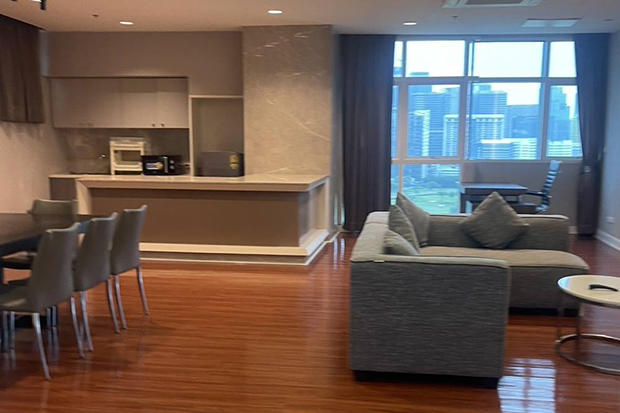Thailand’s Hospital Stay Fuels Outrage, Justice Seems Divided.
Photos of Thaksin’s opulent hospital suite fuel debate over fairness as doctors face scrutiny amid justice concerns.

The pictures are out, and they paint a stark picture, quite literally. As reported by the Bangkok Post, longtime critic Dr. Warong Dechgitvigrom posted photographs of a luxurious suite, allegedly similar to the one where former prime minister Thaksin Shinawatra spent six months serving his prison sentence at Bangkok’s Police General Hospital. This visual evidence, as highlighted in these recent findings, has reignited a debate that cuts to the heart of Thailand’s political and social divisions: the perception of a two-tiered justice system, one for the elite and another for everyone else.
The 14th floor of the Police General Hospital has become a symbol, a shorthand for perceived preferential treatment. A “fully furnished suite… with views overlooking the greenery of the Royal Bangkok Sports Club nearby” isn’t exactly what most people envision when they think of a prison hospital. That Thaksin reportedly occupied two rooms, including one designated a “royal suite,” only amplifies the sense of inequity. The fact that Thaksin paid for his stay doesn’t necessarily alleviate the concerns either; it begs the question of whether the option of purchasing such privilege is available to all.
The situation raises crucial questions about the nature of justice, particularly in contexts marked by deep social inequalities:
- The Role of Medical Expertise: The Medical Council of Thailand is investigating doctors who allegedly provided inaccurate medical information about Thaksin’s condition. This underscores the problematic entanglement of medical professionals with political power and the potential for manipulation of diagnoses to facilitate preferential treatment.
- Impact on Public Trust: When influential figures seem to circumvent standard procedures, it erodes public trust in the judiciary and the government. If justice is not seen as blind, faith in the entire system diminishes.
- Long-Term Political Repercussions: Thaksin’s daughter, Paetongtarn Shinawatra, is the current premier. The ongoing controversy threatens to destabilize her government and fuels the perception that Thailand’s political landscape continues to be shaped by legacies of power and privilege.
- Royal Clemency and Parole: The article notes the reduction of Thaksin’s sentence through royal clemency and his subsequent parole, citing age and ill health. While these actions may be technically within the bounds of the law, they reinforce the perception of leniency afforded to the politically connected.
The potential suspension of the licenses of senior doctors at the Police General Hospital—a decision that requires approval from Public Health Minister Somsak Thepsutin, a key figure in the ruling Pheu Thai Party—further complicates the situation. Any indication that Thaksin wasn’t as “critically ill” as claimed could trigger significant consequences.
The 14th-floor saga is less about the specific details of Thaksin’s stay and more about what that stay represents: a visible manifestation of systemic disparities and the perception that some are simply above the rules that govern the rest. This visual reinforces a deeper narrative of inequality that threatens to undermine Thailand’s social and political fabric.
The inquiry scheduled for June 13th will examine whether Thaksin’s prison sentence was adequately enforced. The fact that both Thaksin and his daughter have been summoned to provide evidence suggests that the issue remains a highly sensitive one, with the potential to reignite political tensions in Thailand. The optics of luxury hospital rooms, investigations into medical conduct, and the ongoing scrutiny from royalist groups all point towards a system struggling to balance justice with the realities of power.









